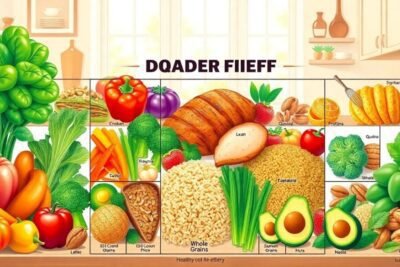
How to lower blood pressure reading fast
High blood pressure, or hypertension, is a serious health issue that affects millions of people worldwide. Understanding how to lower blood pressure reading fast can help you manage your condition and maintain a healthier lifestyle. In this article, we will explore effective strategies and lifestyle changes that can assist in reducing blood pressure quickly and naturally.
- How can I lower my blood pressure naturally?
- What are the foods that lower blood pressure quickly?
- What lifestyle changes help control high blood pressure?
- How does exercise impact blood pressure levels?
- What are the benefits of reducing sodium intake?
- How can stress reduction techniques help my blood pressure?
- Related Questions About Managing Blood Pressure
How can I lower my blood pressure naturally?
Lowering blood pressure naturally is achievable through various lifestyle modifications. One effective method is to adopt a well-balanced diet rich in fruits, vegetables, and whole grains. The DASH diet (Dietary Approaches to Stop Hypertension) is particularly beneficial, emphasizing foods high in potassium and low in sodium.
In addition to dietary changes, managing stress is crucial. Practicing relaxation techniques such as meditation, yoga, or deep breathing can significantly reduce stress levels, which in turn may help lower blood pressure.
Regular physical activity is another key factor in managing blood pressure naturally. Aim for at least 150 minutes of moderate aerobic exercise each week to promote cardiovascular health.
What are the foods that lower blood pressure quickly?
Foods can play a significant role in lowering blood pressure. Some of the most effective options include:
- Leafy greens such as spinach and kale, which are high in potassium.
- Berries, especially blueberries, which are rich in antioxidants.
- Beets, known to improve blood vessel function and lower blood pressure.
- Fatty fish like salmon, which contain omega-3 fatty acids.
- Garlic, which has natural blood pressure-lowering properties.
Incorporating these foods into your diet can provide a quick boost to lower your blood pressure levels. Additionally, reducing salt intake can further support your efforts in achieving optimal blood pressure numbers.
What lifestyle changes help control high blood pressure?
Several lifestyle changes can significantly impact blood pressure control. Here are some essential modifications:
- Weight management: Losing excess weight, particularly around the waist, can lead to a noticeable decrease in blood pressure.
- Regular exercise: Engaging in both aerobic and strength training exercises can improve cardiovascular health.
- Limiting alcohol: Reducing alcohol consumption can lead to lower blood pressure levels.
- Quitting smoking: Smoking cessation is critical for overall heart health.
- Ensuring adequate sleep: Aiming for 7-9 hours of quality sleep each night can positively affect blood pressure.
Implementing these changes can not only help you manage hypertension but also lower the risk of heart disease.
How does exercise impact blood pressure levels?
Exercise is a powerful tool in managing blood pressure. Engaging in regular physical activity strengthens the heart, allowing it to pump blood more efficiently. This efficiency can result in lower blood pressure readings over time.
Both aerobic exercises, such as walking, running, or swimming, and strength training exercises can contribute to better blood pressure control. The key is to remain consistent and gradually increase the intensity and duration of your workouts.
Studies show that individuals who incorporate regular exercise into their routines experience significant reductions in blood pressure. Aim for at least 150 minutes of moderate aerobic activity each week for optimal benefits.
What are the benefits of reducing sodium intake?
Reducing sodium intake is one of the most effective strategies for lowering blood pressure. High sodium consumption can lead to fluid retention, which increases blood volume and, consequently, blood pressure.
Here are some benefits of a low-sodium diet:
- Improved heart health and reduced risk of cardiovascular diseases.
- Better blood pressure management, leading to fewer complications.
- Enhanced overall health by promoting a balanced diet rich in nutrients.
To reduce sodium intake, focus on consuming fresh fruits and vegetables, using herbs and spices for flavoring, and avoiding processed foods that often contain high levels of salt.
How can stress reduction techniques help my blood pressure?
Stress is a well-known contributor to high blood pressure. Therefore, incorporating stress reduction techniques into your daily routine can be incredibly beneficial. Methods such as meditation, mindfulness, and deep breathing exercises can activate your body’s relaxation response, helping to lower blood pressure.
Additionally, engaging in hobbies or activities that bring you joy can also alleviate stress and improve your overall well-being. Taking time for self-care and ensuring you have a supportive social network can also help manage stress levels effectively.
Incorporating these techniques can lead to a more relaxed state, ultimately helping you maintain lower blood pressure readings.
How can I bring my BP down quickly?
To bring your blood pressure down quickly, you can try a combination of deep breathing exercises, taking a warm bath, or consuming foods rich in potassium, such as bananas. Additionally, staying well-hydrated and avoiding caffeine or high-sugar foods can also lead to a rapid decrease in blood pressure.
How can I lower my blood pressure urgently?
In urgent situations, it is essential to remain calm and practice relaxation techniques. Deep breathing and mindfulness can help. If you have time, consider consuming a small snack of high potassium foods or drinking a glass of water to help lower your blood pressure quickly.
Can drinking water lower blood pressure?
Yes, drinking water can help lower blood pressure. Staying hydrated helps maintain proper blood volume and circulation. Dehydration can cause blood pressure to rise, so drinking sufficient water throughout the day is crucial for managing blood pressure levels effectively.
What makes blood pressure drop quickly?
Several factors can contribute to a quick drop in blood pressure, such as engaging in physical activity, practicing relaxation techniques, or consuming certain foods like beets and leafy greens. Keeping stress levels low and maintaining a healthy lifestyle also play a significant role in achieving quick reductions in blood pressure.
For more insights, check out this informative video!










